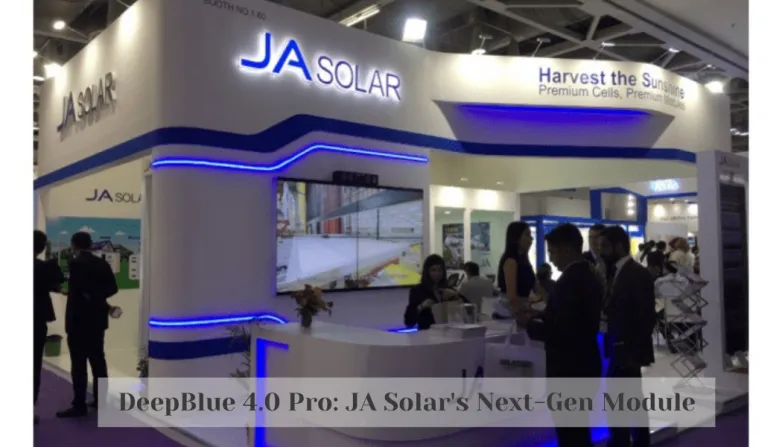DeepBlue 4.0 Pro: JA Solar's Next-Gen Module
- JA Solar's new DeepBlue 4.0 Pro module is designed with advanced Bycium+, SMBB, and high-density encapsulation technologies. With a cell efficiency of 25.3% and up to 630W of power, the module helps reduce BOS cost and LCOE by up to 6%, ensuring exceptional performance and high profits for customers. Certified by IEC standards, it passes rigorous aging tests.

JA Solar recently released its new n-type module DeepBlue 4.0 Pro at SNEC 2023, which utilizes cells cut from next generation n-type rectangular silicon wafer size. Combined with Bycium+ cell technology, the module has an Open Circuit Voltage (Voc) of 725mV and a cell efficiency of 25.3%. It also integrates SMBB technology, high-density encapsulation technology, and other technologies. With the 72-cell module reaching 630W and efficiency exceeding 22.5%, the new module is able to reduce BOS cost and hot spot risk for the system and is applicable under multiple scenarios. In addition, the module has also passed various rigorous aging tests and all results meet the testing requirements of IEC standards and earned several critical certifications. It can generate greater profits for customers by reducing BOS cost and LCOE by up to 6%.
What Does JA Solar's DeepBlue 4.0 Pro Offer?
What Does JA Solar's DeepBlue 4.0 Pro Offer?
- Next-generation n-type module designed with a new size of rectangular silicon wafer
- Open Circuit Voltage (Voc) of the cell reaches 725mV and the cell efficiency of mass production reaches 25.3%
- Power of 72-cell module to reach 630W with module efficiency exceeding 22.5%
- Cells cut from the next generation n-type rectangular silicon wafer size that features a long lifespan and low oxygen content
- SMBB technology, high-density encapsulation technology, and other technologies improving quality and efficiency
- 182mm x 199mm silicon wafers enables application under multiple scenario
- Bycium+ cell technology has outstanding power generation characteristics, such as lower degradation, better temperature coefficient, higher bifacial generation gain, and better lower irradiance performance
- Earned certifications: TÜV SÜD certificate, Salt mist corrosion certificate, Ammonia corrosion certificate, Dust and sand certificate, Golden Sun Certificate, Photovoltaic Non-uniform Snow Load Reliability Certification and Photovoltaic Flexible Racking System Compatibility Certificate
- BOS cost can be reduced by about 2%-4.5%, and the LCOE can be reduced by about 2.5%-6% compared to p-type modules in different application scenarios, project types and installation methods
Also read

